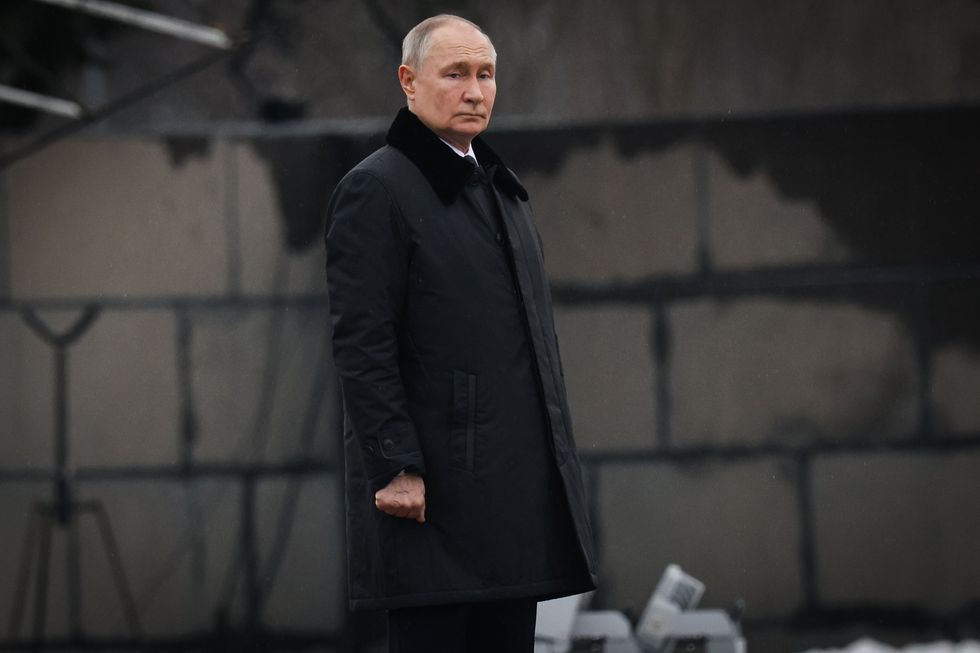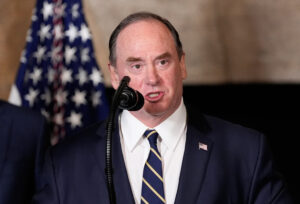
-Analysis-
PARIS – Things are about to get real. Donald Trump caught everyone off guard Wednesday when he announced that, after a 90-minute phone call with Vladimir Putin, negotiations would begin “immediately” to end the war in Ukraine.
This announcement raises countless questions — not just about the format of these negotiations, but also about their potential outcomes. While the Ukrainians are at the heart of these concerns, the stakes are just as high for the future of Europe.
For the latest news & views from every corner of the world, Worldcrunch Today is the only truly international newsletter. Sign up here.
The first question: What, exactly, is this Trump-Putin arrangement? Trump called up Volodymyr Zelensky after speaking with the Russian leader — but will Ukraine be an active participant, or merely the “topic,” of these negotiations? And how far will Trump go with this new buddy-buddy relationship with Moscow’s strongman, whom he’s long admired?
Ukraine’s role and Territory
Just before Trump’s announcement, a Ukrainian source told me that Kyiv had been reassured that Washington wouldn’t strike a deal with Putin behind its back. The fear still lingers, but at least the negotiations aren’t happening in secret — Kyiv isn’t being presented with a done deal.
Under what conditions will these negotiations be held? The new U.S. Defense Secretary Peter Hegseth was in Brussels for the first time Wednesday and made himself rather clear: “Ukraine returning to Ukraine’s pre-2014 borders is an unrealistic objective,” he said. That would appear to rule out Crimea, occupied since 2014, parts of the Donbas, and the Russian territorial gains since 2022.
Privately, Ukrainians acknowledge this reality — they have come to terms with territorial partition. But they also admit it will be a tough sell to a population that has endured so many sacrifices.

What about the “German model”?
But the “German model” is gaining traction — a partition similar to what Germany experienced between East and West, holding out for better days. Just like Germany’s reunification, which came four decades later when the Cold War thawed, Ukraine could hope for the same. It would be a major concession for Kyiv.
The ultimate question is how can Ukraine’s security be guaranteed? A Ukrainian official told me that there are only two real security guarantees: the atomic bomb and NATO. But neither will be available to Ukraine in the event of an armistice. So, something else must be found to deter Russia from attacking its neighbor once again.
This is where Europe has a role to play, even though Zelensky insists that the United States must be involved in any post-conflict security agreement. Europe’s role will be even more crucial given that the Pentagon chief sent a clear signal of U.S. disengagement. He emphasized that the U.S. is no longer “prioritizing” Europe and that Europe should take “the lead” in defending Ukraine.
But in that case, will Europe at least be at the table for the negotiations? A meeting of European foreign ministers Wednesday night in Paris demanded that both Ukraine and Europe “participate in any negotiation.” Moscow opposes this — will Europe’s demand be heard in Washington?
This is certainly a major challenge for Europe, for which it is frankly not yet ready. Especially with Russia’s military spending in 2024 exceeding that of the 27 European countries combined, and with Ukraine that dreams of Europe but still places more trust in a U.S. guarantee. The coming weeks will therefore be decisive for Ukraine, but also for Europe.





























